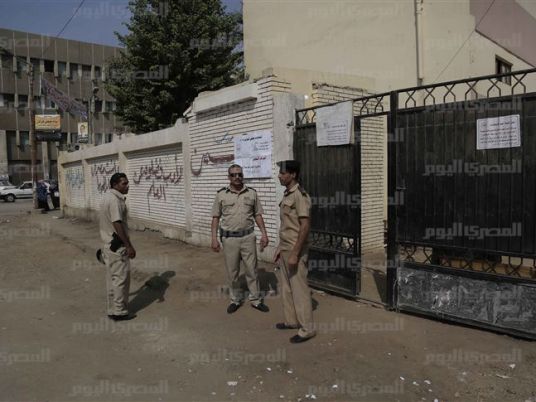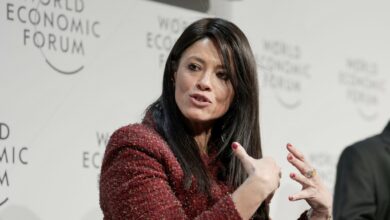
Egypt’s Foreign Affairs Ministry has responded strongly to what it considers are attempts by the foreign press to belittle the House of Representatives' elections following the press' focus on the low voter turnout for the first phase of the elections, which occured on Sunday and Monday.
Foreign newspapers were “desperate" to publish information on the voter turnout, said ministry spokesperson Ahmed Abu Zeid, “after they failed in every attempt over the past year to tarnish Egypt’s image and give the impression of regression in its democratic transition.”
Abu Zeid said the foreign press reports, which suggested a lack of real opposition to the current regime, relied solely on the absence of the “terrorist” Muslim Brotherhood group to make that claim. The minister indicated that the conclusion made was insufficient to support such an allegation.
“Any observer or anaylst with the least bit of credibility…is undoubtedly aware that parliamentary elections this year are subject to several considerations,” said Abu Zeid. He explained that those considerations include the state of “electoral exhaustion Egypt is experiencing after eight polls over the past four years”.
Abu Zeid rejected the suggestion by foreign reports that current parliamentary polls could be used to measure popular support for Egypt’s political leadership, adding that such an argument is “doomed to fail.” He said such a stance ignores what he described as achievements by the current leadership, most notably Egypt's recent acquisition of a non-permanent UN Security Council seat, as well as improvement in foreign investments and successful anti-terrorism efforts.
The foreign press has described the lack of voting by Egyptians during the first stage of the House of Representatives' election as a disregard for the process, stressing that the elections constitute a test on the popularity of President Abdel Fattah al-Sisi who had urged citizens to actively participate.
“Experts say the outcome of the election is a foregone conclusion and only voter turnout will be a gauge of popularity for Sisi,” the Guardian said Monday.
Prime Minister Sherif Ismail had announced a 16 percent voter turnout for the first day of polls, on Sunday, a low rate bemoaned by pro-Sisi media outlets.
“The poll has not inspired the enthusiasm witnessed for Egypt’s first democratic elections in 2011,” the Guardian added, attributing the lack of interest to the absence of tough government opponents, such as the now-banned Muslim Brotherhood.
“A mix of voters’ apathy and frustration characterized elections held Sunday for Egypt’s first legislature in more than three years,” the Washington Post said Sunday. It quoted one citizen as saying that there was no “incentive” to participate, as candidate platforms would probably not be implemented.
“With a voting system that favors individuals rather than parties – hundreds of seats in parliament will be filled by candidates not officially connected to any political group – critics say those with existing networks of power and influence, including many former members of the NDP [National Democratic Party], have an advantage,” the Independent wrote Saturday.




